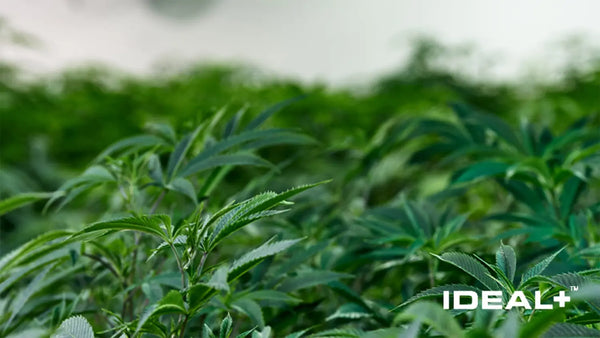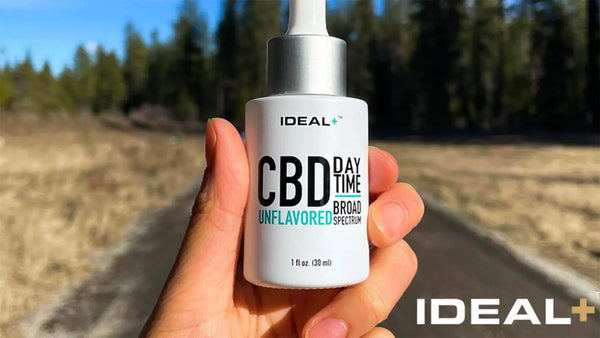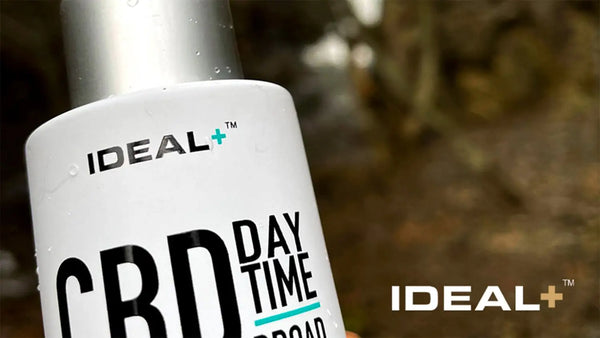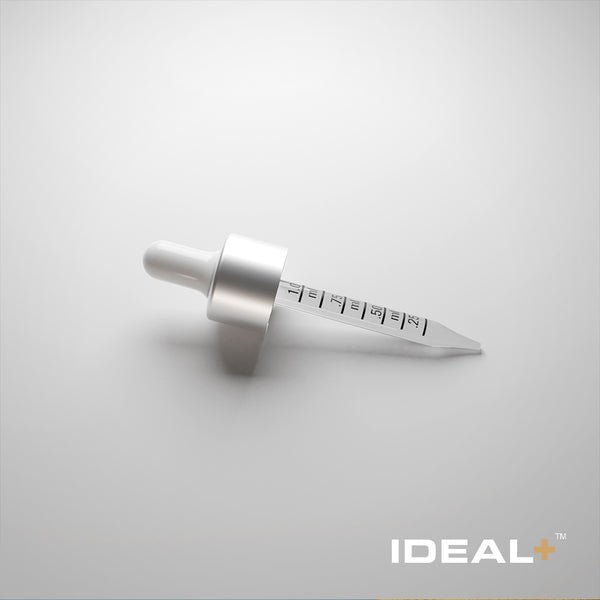No Products in the Cart
Black Friday: 40% OFF Full-Term THCa Flower + 30% OFF THCa Indoor, Vapes and Concentrates

Anxiety disorders affect over 40 million adults in the United States alone, making them the most common mental health condition in the country. While traditional treatments like therapy and prescription medications have helped many people manage their anxiety, a growing number of individuals are turning to alternative approaches. Among these alternatives, CBD for anxiety has emerged as one of the most promising and widely discussed options.
Cannabidiol, commonly known as CBD, is a non-psychoactive compound derived from the cannabis plant that has captured the attention of researchers, healthcare providers, and anxiety sufferers alike. Unlike its cousin THC, CBD doesn't produce a "high," making it an appealing option for those seeking CBD anxiety relief without unwanted psychoactive effects.
But does the science support the hype? In this comprehensive guide, we'll explore how CBD works in the body, examine the current research on its effectiveness for anxiety disorders, discuss proper dosage guidelines, and help you understand whether CBD might be a suitable addition to your anxiety management toolkit.
To understand how CBD for anxiety might work, we first need to explore the body's endocannabinoid system (ECS). This complex network of receptors, enzymes, and endocannabinoids plays a crucial role in regulating various physiological processes, including mood, stress response, and anxiety levels.
The endocannabinoid system consists of two primary receptors: CB1 and CB2. CB1 receptors are predominantly found in the brain and central nervous system, while CB2 receptors are mainly located in the immune system and peripheral tissues. When these receptors are activated by endocannabinoids (naturally occurring compounds in our bodies), they help maintain homeostasis and regulate our response to stress and anxiety.
Research suggests that people with anxiety disorders may have an endocannabinoid deficiency, which could contribute to their heightened stress response. By introducing CBD into the system, we may be able to support the endocannabinoid system's natural function and potentially reduce anxiety symptoms.
While CBD has a complex relationship with the endocannabinoid system, one of its most significant mechanisms for addressing anxiety appears to involve serotonin receptors. Specifically, CBD interacts with the 5-HT1A receptor, which is part of the serotonin system that plays a crucial role in mood regulation.
Serotonin is often called the "happiness neurotransmitter" because of its role in promoting feelings of well-being and emotional stability. Many traditional anxiety medications, including selective serotonin reuptake inhibitors (SSRIs), work by increasing serotonin availability in the brain. CBD appears to activate the 5-HT1A receptor directly, which may explain why many people report feeling calmer and less anxious after using CBD anxiety relief products.
When people ask "does CBD help anxiety," they're often comparing it to traditional pharmaceutical options. Understanding the differences between CBD and conventional anxiety medications can help individuals make informed decisions about their treatment options.
Traditional benzodiazepines like Xanax work by enhancing the activity of GABA, a neurotransmitter that promotes relaxation and reduces neural activity. While effective for acute anxiety, these medications can be habit-forming and may cause drowsiness, cognitive impairment, and withdrawal symptoms when discontinued.
The comparison of CBD vs Xanax for anxiety reveals several key differences. CBD appears to work more gradually and gently, without the sedating effects or addiction potential of benzodiazepines. However, it's important to note that CBD is not a direct replacement for prescription medications, and anyone considering making changes to their anxiety treatment should consult with a healthcare provider.
SSRIs, another common class of anxiety medications, work by preventing the reuptake of serotonin, effectively increasing its availability in the brain. While CBD also influences serotonin signaling, it does so through different mechanisms and may have a more immediate onset of action compared to SSRIs, which typically take several weeks to show full effects.

The scientific investigation into CBD's effects on anxiety has produced increasingly promising results, though researchers emphasize that more studies are needed to fully understand its therapeutic potential.
One of the most significant studies in this field was published in the journal Neuropsychopharmacology in 2011. Researchers conducted a double-blind, placebo-controlled study involving 24 people with CBD social anxiety disorder. Participants were given either 600mg of CBD or a placebo before performing a simulated public speaking test, which is known to trigger anxiety in people with social anxiety disorder.
The results were remarkable: those who received CBD experienced significantly reduced anxiety, cognitive impairment, and discomfort during their speech performance compared to the placebo group. Perhaps most importantly, their anxiety levels were similar to those of a healthy control group, suggesting that CBD effectively normalized their anxiety response.
A 2019 study published in The Permanente Journal examined CBD's effects on anxiety and sleep in a clinical population. The study included 72 adults, with 47 experiencing anxiety and 25 experiencing poor sleep. Participants received 25mg of CBD daily in capsule form. After the first month, anxiety scores decreased in 79.2% of patients and remained decreased during the study duration.
Research has also explored CBD's potential for treating CBD generalized anxiety disorder. A 2020 review published in Cannabis and Cannabinoid Research analyzed multiple studies and concluded that CBD shows promise as a treatment for various anxiety disorders, including generalized anxiety disorder, social anxiety disorder, and post-traumatic stress disorder.
Understanding the CBD anxiety dosage used in clinical studies is crucial for anyone considering CBD for anxiety management. Research studies have used varying doses depending on the specific condition being studied and the method of administration.
For social anxiety disorder, the landmark 2011 study used a single dose of 600mg of CBD administered orally. However, this high dose was used for acute anxiety provocation and may not be necessary for daily anxiety management.
The 2019 clinical study that showed positive results for general anxiety used much lower doses of 25mg daily, suggesting that smaller amounts may be effective for ongoing anxiety management. Some studies have used doses ranging from 15mg to 600mg daily, with most researchers finding that doses between 25mg and 300mg are effective for anxiety symptoms.
It's worth noting that individual responses to CBD can vary significantly, and what works for one person may not work for another. Factors such as body weight, metabolism, severity of anxiety symptoms, and individual endocannabinoid system function can all influence the optimal dosage.
While the existing research on CBD for anxiety is promising, it's important to acknowledge the limitations of current studies. Most clinical trials have been relatively small, with sample sizes ranging from 20 to 100 participants. Larger, long-term studies are needed to better understand CBD's safety and efficacy profile.
Additionally, many studies have focused on acute anxiety situations rather than chronic anxiety disorders. While these studies provide valuable insights into CBD's anxiolytic properties, more research is needed to understand how CBD performs as a long-term treatment option.
The quality and standardization of CBD products used in research also varies, making it challenging to compare results across studies. This highlights the importance of choosing high-quality, third-party tested CBD products when considering CBD for anxiety management.
Research suggests that CBD may be beneficial for several different types of anxiety disorders, each with its own unique characteristics and treatment considerations.
CBD social anxiety research has shown particularly promising results. Social anxiety disorder affects approximately 15 million American adults and is characterized by intense fear or anxiety in social situations where the person may be scrutinized by others.
The 2011 study on CBD and social anxiety demonstrated that CBD could significantly reduce anxiety symptoms during a public speaking challenge. Participants who received CBD showed reduced anxiety, less cognitive impairment, and decreased discomfort during their presentation. Brain imaging studies have also shown that CBD affects activity in brain regions associated with anxiety, including the limbic and paralimbic areas.
For individuals with social anxiety disorder, CBD may offer a non-sedating option that doesn't impair cognitive function or social performance. Unlike some traditional anxiety medications that can cause drowsiness or mental fog, CBD appears to reduce anxiety while allowing individuals to remain alert and engaged.
CBD generalized anxiety disorder research, while less extensive than social anxiety studies, has shown encouraging results. Generalized anxiety disorder (GAD) is characterized by persistent, excessive worry about various aspects of life, often accompanied by physical symptoms such as muscle tension, fatigue, and difficulty concentrating.
A 2020 study published in the Journal of Cannabis Research followed adults with anxiety symptoms who used a full-spectrum CBD product. After eight weeks of treatment, participants showed significant improvements in anxiety symptoms, with many reporting better sleep quality and overall well-being.
The mechanisms by which CBD may help GAD appear to involve both the endocannabinoid system and serotonin signaling pathways. By modulating these systems, CBD may help reduce the excessive worry and physical symptoms associated with generalized anxiety disorder.
Post-traumatic stress disorder (PTSD) often involves significant anxiety symptoms, including hypervigilance, panic attacks, and anxiety related to trauma triggers. Research into CBD's effects on PTSD-related anxiety is still emerging, but preliminary studies suggest potential benefits.
A 2019 study published in the Journal of Alternative and Complementary Medicine examined CBD's effects on PTSD symptoms in 11 adults. Participants received CBD alongside routine psychiatric care for eight weeks. The study found that CBD was well-tolerated and associated with decreased PTSD symptom severity in the majority of participants.
CBD's potential for PTSD-related anxiety may involve its effects on memory processing and fear extinction. Research suggests that CBD may help reduce the emotional impact of traumatic memories and support the brain's natural process of overcoming fear-based responses.

Determining the right CBD anxiety dosage is one of the most common questions people have when considering CBD for anxiety management. Unlike prescription medications with standardized dosing guidelines, CBD dosing is highly individualized and requires a personalized approach.
For individuals new to CBD, the general recommendation is to "start low and go slow." Most experts suggest beginning with a dose between 5mg and 10mg of CBD taken once or twice daily. This conservative approach allows you to assess your body's response to CBD while minimizing the risk of any unwanted effects.
When determining your starting dose, consider factors such as your body weight, the severity of your anxiety symptoms, and your sensitivity to supplements or medications. Some people may find relief with doses as low as 5mg, while others may need 25mg or more to experience benefits.
It's important to maintain a consistent dosing schedule for at least one week before making any adjustments. CBD's effects on anxiety may be subtle at first, and it can take time for your body to adapt to the compound. Keep a journal to track your daily dose, timing, and any changes in anxiety levels or overall well-being.
The timing of CBD administration can significantly impact its effectiveness for anxiety management. Many people find that taking CBD for anxiety 30-60 minutes before anticipated stressful situations provides the best results for situational anxiety.
For general anxiety management, some individuals prefer to split their daily dose, taking CBD in the morning and evening. This approach can provide more consistent levels of CBD in the system throughout the day. Others find that taking their entire daily dose in the evening helps with both anxiety and sleep quality.
If you're using CBD for social anxiety, timing becomes particularly important. Taking CBD 60-90 minutes before social situations may provide optimal anxiety relief when you need it most. However, it's advisable to test this timing on non-critical days to understand how your body responds.
The method of CBD consumption can affect both the onset time and duration of anxiety relief. Understanding the different options can help you choose the best CBD for anxiety delivery method for your specific needs.
CBD Oil and Tinctures: Sublingual administration (under the tongue) is one of the most popular methods for anxiety management. CBD oils typically take effect within 15-45 minutes and provide effects lasting 4-6 hours. This method allows for precise dosing and relatively quick onset of action.
CBD Gummies and Edibles: CBD gummies for anxiety are increasingly popular due to their convenience and discrete nature. However, edibles must pass through the digestive system, which means they take longer to take effect (typically 30-90 minutes) but may provide longer-lasting relief (6-8 hours).
CBD Capsules: Capsules offer consistent dosing and are easy to incorporate into daily routines. Like other edibles, they have a slower onset but longer duration of effects. This method is ideal for individuals who prefer a standardized, no-taste option.
CBD Vaping: While vaping provides the fastest onset of effects (within minutes), it's not always practical for anxiety management and may not be suitable for everyone. The effects also tend to be shorter-lasting (2-3 hours).

When exploring CBD for anxiety, product quality and safety should be top priorities. The CBD market is largely unregulated, which means product quality can vary significantly between manufacturers.
High-quality CBD products should include third-party lab testing results, often called Certificates of Analysis (COAs). These tests verify the CBD content and screen for contaminants such as pesticides, heavy metals, and residual solvents. Reputable manufacturers make these test results easily accessible to consumers.
Full-spectrum CBD products contain other cannabinoids and terpenes that may enhance CBD's anxiety-relieving effects through what's known as the "entourage effect." However, these products contain trace amounts of THC (less than 0.3% by law), which some individuals prefer to avoid.
Broad-spectrum CBD products contain multiple cannabinoids and terpenes but have THC removed, while CBD isolate contains only pure CBD. The choice between these options often comes down to personal preference and individual response.
While CBD is generally well-tolerated, some people may experience side effects, particularly at higher doses. Common side effects include drowsiness, dry mouth, changes in appetite, and digestive issues. These effects are typically mild and often resolve as the body adjusts to CBD.
CBD can interact with certain medications, particularly those metabolized by the liver enzyme CYP450. If you're taking prescription medications, especially for anxiety or other mental health conditions, it's crucial to consult with a healthcare provider before adding CBD to your routine.
While clinical research provides valuable insights into CBD's potential for anxiety, real-world experiences from users offer additional perspectives on how CBD anxiety relief works in practice.
Many users report that CBD helps them feel calmer and more centered without the sedating effects of traditional anxiety medications. Common themes in CBD oil anxiety reviews include improved sleep quality, reduced racing thoughts, and better ability to cope with stressful situations.
However, experiences vary significantly among users. Some people notice immediate effects, while others report that benefits became apparent only after several weeks of consistent use. This variability underscores the importance of individualized dosing and patience when starting a CBD regimen.
CBD for anxiety is best viewed as one component of a comprehensive approach to anxiety management rather than a standalone solution. Research suggests that CBD may be most effective when combined with other evidence-based treatments and lifestyle modifications.
Cognitive-behavioral therapy (CBT) and other therapeutic approaches have strong evidence for treating anxiety disorders. CBD may complement therapy by helping individuals feel calmer during sessions and more able to practice coping techniques in their daily lives.
Some therapists are becoming more open to discussing CBD use with their clients, particularly as research continues to demonstrate its safety profile. If you're considering combining CBD with therapy, discuss this with your mental health provider to ensure coordinated care.
Several lifestyle factors may enhance CBD's anxiety-relieving effects. Regular exercise has been shown to reduce anxiety and may work synergistically with CBD. Similarly, stress management techniques such as meditation, deep breathing exercises, and yoga may complement CBD's calming effects.
Sleep quality is closely linked to anxiety levels, and many people find that CBD helps improve both sleep and anxiety. Maintaining good sleep hygiene practices alongside CBD use may provide additional benefits for anxiety management.
The field of CBD research is rapidly evolving, with new studies regularly adding to our understanding of how CBD for anxiety works and who might benefit most from its use.
Current research priorities include larger, longer-term clinical trials that can provide more definitive evidence of CBD's effectiveness for different types of anxiety disorders. Researchers are also investigating optimal dosing strategies and exploring how individual factors such as genetics might influence CBD's effects.
The development of standardized CBD products specifically designed for anxiety management is another area of active research and development. These products may offer more consistent and predictable effects compared to general-use CBD products.
How long does CBD take to work for anxiety? The onset time depends on the method of consumption. Sublingual oils typically take effect within 15-45 minutes, while edibles may take 30-90 minutes. Some people notice immediate effects, while others require several weeks of consistent use to experience full benefits.
Can I take CBD with my current anxiety medication? CBD can interact with certain medications, so it's essential to consult with your healthcare provider before combining CBD with prescription anxiety medications. Never stop or reduce prescription medications without medical supervision.
Is CBD addictive? Current research suggests that CBD does not have addiction potential. Unlike THC or benzodiazepines, CBD does not appear to cause dependence or withdrawal symptoms when discontinued.
How much CBD should I take for anxiety? Effective doses vary widely among individuals. Most people start with 5-10mg once or twice daily and adjust based on their response. Clinical studies have used doses ranging from 25mg to 600mg daily, but lower doses are often effective for daily anxiety management.
Will CBD show up on a drug test? Pure CBD should not cause a positive drug test, as most tests screen for THC. However, full-spectrum CBD products contain trace amounts of THC that could potentially accumulate with regular use. If drug testing is a concern, consider broad-spectrum or CBD isolate products.
The research on CBD for anxiety continues to evolve, but current evidence suggests that CBD may offer a promising option for individuals seeking natural anxiety relief. Studies have demonstrated CBD's potential effectiveness for social anxiety disorder, generalized anxiety disorder, and PTSD-related anxiety, with many participants experiencing significant symptom reduction.
CBD's unique mechanism of action, involving both the endocannabinoid system and serotonin signaling pathways, sets it apart from traditional anxiety medications. Unlike benzodiazepines, CBD doesn't appear to cause sedation or dependence, and unlike SSRIs, CBD may offer more immediate effects.
However, it's crucial to remember that CBD anxiety relief is not a one-size-fits-all solution. Individual responses vary significantly, and finding the right product, dosage, and timing requires patience and experimentation. Starting with low doses and gradually increasing as needed, while monitoring your response, is the safest and most effective approach.
Quality matters immensely in the CBD market. Choose products from reputable manufacturers that provide third-party lab testing results and use high-quality extraction methods. Whether you prefer CBD gummies for anxiety, oils, or capsules, ensure you're selecting products that meet high standards for purity and potency.
Most importantly, while CBD shows promise as a natural anxiety management tool, it should not replace professional medical care. If you're currently taking anxiety medications or experiencing severe anxiety symptoms, consult with a healthcare provider before making any changes to your treatment plan. CBD may be most effective as part of a comprehensive approach that includes therapy, lifestyle modifications, and, when appropriate, traditional medical treatments.
As research continues to expand our understanding of CBD's therapeutic potential, individuals with anxiety disorders have reason for optimism. The growing body of evidence supporting CBD for anxiety suggests that this natural compound may offer a valuable tool in the ongoing effort to help people live healthier, more balanced lives free from the constraints of excessive anxiety.
Whether you're dealing with social anxiety, generalized anxiety disorder, or simply looking for natural ways to manage everyday stress, CBD represents an exciting frontier in anxiety management. With proper guidance, quality products, and realistic expectations, CBD may help you take an important step toward better mental health and improved quality of life.